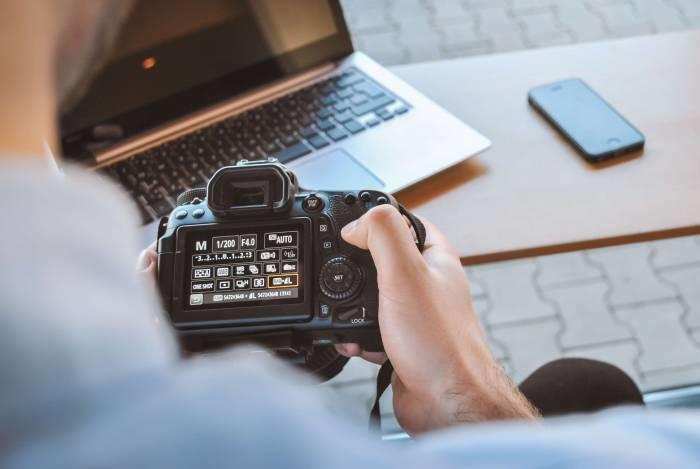"You do not take a photograph, you create it," Ansel Adams
If you have already considered a career as a photographer, perhaps you can spice up your professional path by also teaching photography. If you are creative and passionate about your art, perhaps you could help more students choose a career as professional photographers or simply share your art and enjoy it all together!
If you are interested in becoming a private photography tutor, this article is for you! Here you will find many tips that can help you become the best teacher!
Since photography is often very competitive, giving private online lessons can help you make a name for yourself, practice your skills and earn a good extra income. But first, we recommend you start your tutoring business off on the right foot! In this article, you will find everything you must know to increase your chances of success. Find out the best requirements to teach virtual photography lessons, how to boost your personal and professional career and how to set your rates, among others.
When giving online lessons, some professional photographers tend to underestimate their value, while others inflate their rates and run the risk of discouraging students looking for affordable courses. What you need to do is choose the best rate for your profile. You are going to see it's a piece of cake!
Take a look at the criteria you should take into consideration when setting your photography rates! Don't miss anything!
Discover how you can be teaching photography as a tutor here.

Reasons to teach the art of photography
Teaching photography enhances the ability to learn, as its study facilitates the development of many learning skills. Here are some interesting reasons why teaching the art of photography is highly recommended:
The importance of sharing your passion. Art exists to transmit sensations. Photography, painting, music, theatre, cooking... whatever you are passionate about, it does not matter! The most important thing is that it moves you inside, that it triggers some emotion within you, be it joy, sadness, or even discomfort, and that this work of art communicates something to you. If looking at a photograph takes you back for a moment to the days when you were the happiest child, it means that the photography has fulfilled its mission. There are few things more exciting than the art of photography. Discover every reason why teaching this art is the best idea.
Increased processing speed. This refers to how quickly we perceive and understand things, and how we react to this information. Although not directly related to a person's intelligence, having a good processing speed is associated with better memory, more flexible thinking, being more organized, and planning things better. When we learn to use the camera, we learn to react faster and more accurately. That is why photography helps to train processing speed.
Visualisation of space. This is the ability to know the relationship between objects, their place in space, their shape, and their measurements. Photography helps students to reinforce this ability and to interact better with the space, and take better and more harmonious pictures.
Analytical capacity. This refers mainly to the development of the thinking process and the ability to solve problems. Although it also helps in solving mathematical problems, good numeracy in photography contributes to a better understanding of digital photography, since, for example, the doubling of light on the sensor has to be calculated. Did you think you were going to escape maths once again? We don't think so!
Boost of creativity. Being creative is an important skill to find different ways to solve problems. Creativity is essential in art, but also life in general. Having the ability to create something new, to make connections from known issues to innovative alternatives, and go beyond our limits, will always be essential for photography.
Develop self-awareness. Photography is a means of self-expression. Choosing the art of photography as a means of expression will help the student to project him/herself through the camera.
Open door to explore the world. The teaching of photography is a privileged tool for discovering the world around us. Through the camera, we pay more attention and appreciate all the wonders that usually go unnoticed. Appreciating beauty, playing with light, and discovering textures will now be an opportunity to see the world differently. Through photography, we can connect with a different reality than the one we are used to knowing.
Reason to travel. What are you waiting for? Grab your camera and discover any new country!
Here are all our tips to start giving photography classes via Skype!
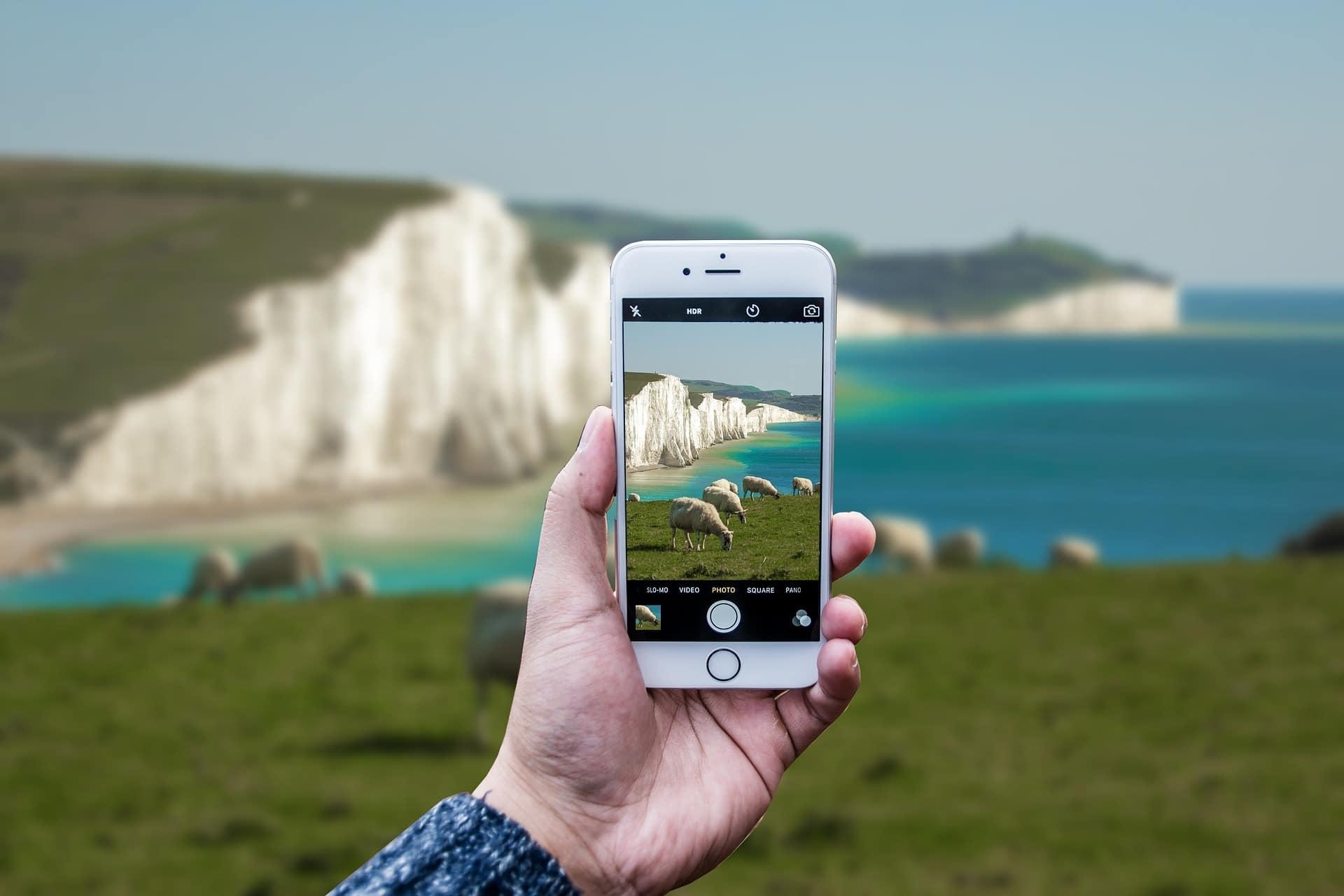
How to be a good photography tutor?
Being a good teacher is important in school, in photography, and life in general. Being a good photography tutor will be key for your students to receive the best advice and evolve in their photographic techniques, but also for you to enjoy the moment.
As a first recommendation, it is very important that you are up to date, as having a good technical and theoretical base will always add value to your class. Times are constantly changing and what is in vogue today will be completely out of fashion tomorrow. Keeping abreast of new trends will always be very beneficial to establish the type of students you are looking for. Whether if you are interested in traditional photography, or digital photography techniques for social media. Even if digital development isn't your thing, it's always good to have a good knowledge base and be prepared for that curious student.
Also, something we consider essential is to be punctual. Whether you prefer to give face-to-face or online classes, starting the class on time speaks of your seriousness and leadership. Try to have your material ready so that you always start early. Plugging in your video camera or arriving 10 minutes early to your classes never hurts.
Plan your classes with time. Do you know how you can be more creative during your photography classes? Well, you'll never know if you don't take the time to plan them. Therefore, we recommend you have a syllabus with the topics, an agenda to set the dates of each topic, and all the tools you need to use during the class. Keeping an agenda will even allow the student to do some research on the topic to be covered for the next session, achieving an ideal exchange between the two of you.
Also, it is important to know how to give constructive criticism to students. We don't mean to be the most demanding teachers, but giving good feedback is important for the evolution of the student, especially when it comes to manual work such as photography. We bet that the teachers you remember most were those who helped you to correct your mistakes.
Another essential point of a good tutor is to have empathy with the student. You may have been working as a photographer for a long time and know the industry. However, your students likely have very little knowledge and a lot of expectations. Therefore, it is important to guide them on the right path and teach them how to use their strengths and get the best out of them. Above all, they should enjoy the process. Although we don't know what kind of students you will have in the future, one thing is for sure is that they will all seek to enjoy the art of photography as much as you do.
Don't forget to provide good learning material. A photography class with an expert is interesting, but reinforcing the knowledge with extra material is excellent. You can go deeper into the theory, but a good tutor will provide the student with anything that will help him or her to learn. Whether it is books, films, online tutorials, everything is possible.
Remember that a tutor can be an inspirational figure and even more so when they are passionate about their art.
Here is how you can find students for your photography tutoring here.
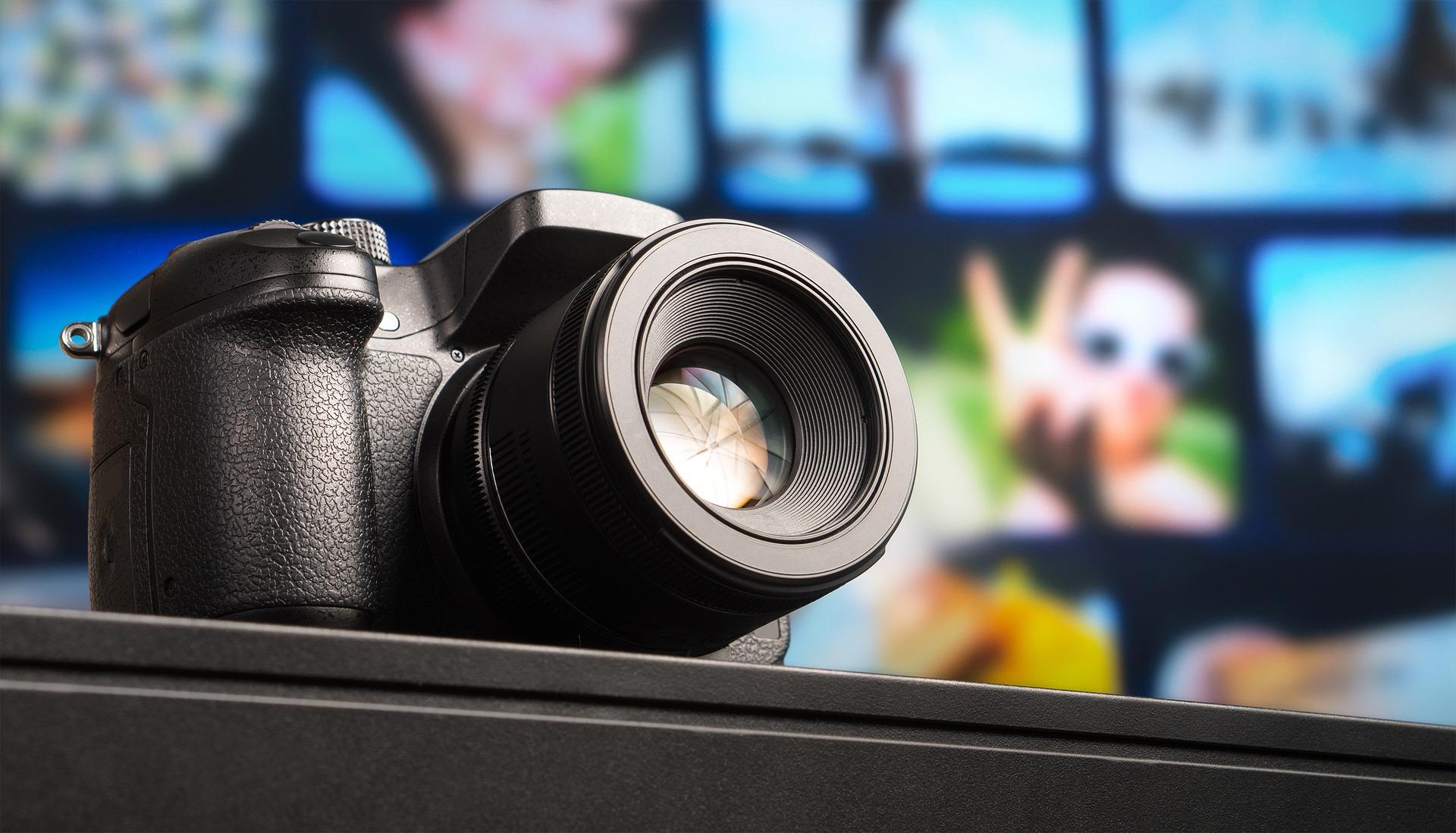
How to become a private photography tutor in Canada?
If you are thinking about becoming a private photography tutor, but don't know where to start, read on!
Deciding to become a photography tutor will bring you many benefits, such as sharing your passion and your art, earning extra money, getting more professional experience, and meeting new people, but you will also have all the freedom to be your boss! Your professional life can be as flexible as you want it to be. And to achieve this, why not promote your services through Superprof?
One of the great advantages of today's technology is that it's much easier and more convenient to connect those who want to teach with those who want to learn! Superprof is a virtual tutoring platform that is present all over the world. With Superprof, you can promote your private tutoring and reach many students interested in photography. You can also decide whether to give face-to-face lessons to students who are close to you or give online lessons to contact those who are further away. If you have a good knowledge of photography, promoting yourself through the Superprof platform can be the best option to make yourself known and reach many more students.
And getting started is much easier than you think! On the official Superprof Canada website, select "tutoring jobs". You can immediately fill in your contact details and create your tutor account for free, becoming the best photography tutor in just one click away! You don't know where the decisions you make in life can lead you, but we know that being part of Superprof will be one of the best of them.
In addition, if you are interested in knowing how to price your tutoring, you have several things to consider. Read on to analyze each of them. Information is always power!
Adjust the price of your private lessons!
Set your rates according to the level
When looking for a professional photographer on Superprof, students often look first at the price of tutoring. That's why it's important to specify in your profile that the higher their level, the higher the price per lesson. Students who already have experience in photography and are looking to improve their art will be much more willing to pay a slightly higher price, as long as the course meets their expectations. Since a good photography course can provide innovative and different techniques to explore this art to the fullest, some students will see it as an excellent investment.
Photography classes are divided into three categories:
- Beginners courses: This is primarily an introductory course. The introduction to photography begins by teaching the importance of light. Light is the essential component of the photographer. Knowing its properties and learning how to work with it is part of the basic lessons of this art. Other topics taught to beginners include the rules of composition, camera operation, depth, light metering modes, focusing, etc.
- Intermediate courses: For students who are a little more familiar with photography, it is advisable to offer new knowledge in balanced or unbalanced composition, histogram and dynamic range, camera handling, modification of light sources, and control of the post-production process of an image. However, it is up to you to decide which subjects to teach.
- Advanced courses: Generally, advanced students are looking for many more challenges, such as advanced elements of composition, more advanced settings of camera functions, the use of flash, as well as tips for photographing in different circumstances. Advanced classes could also include how to use Photoshop Lightroom, for example.
When describing your profile for private lessons with Superprof, you can propose to teach the levels of photography you are most comfortable with. Another good option is to organize your photography lessons in small groups with students of the same level, so that you can offer a better price for your tutoring, as long as it suits you. And never forget that the more attractive your rates are, the more students you will have and the more recommendations you will get!
Discover how you can become a photography tutor here on Superprof.

Consider the type of photography
When you teach photography, you can specialize in the type of photography you like the most. Your specialty can always be one of your strengths. If you have a background in framing and composition, film, journalistic or documentary photography, choose the one you like the most to teach. However, the level of complexity is one of the factors to consider when pricing your classes. For example, if the class deals with the basics of photography for beginners or the history of photography, the rates will be more affordable. On the other hand, if you want to teach something specific like digital photography, and require more expensive and specialized equipment, you can set a higher price for your private lessons.
Here are some of the most popular specialties among students:
- Black and white photography,
- Studio portrait photography,
- Night photography,
- History of photography,
- Macro photography,
- Cityscape photography,
- Culinary photography,
- Wedding photo session,
- Photo reportage, among others.
Another point to consider to establish a fair price for your classes is the level of the intermediates and advanced students. Advanced photography techniques will be essential for the most experienced students. As a result, you should always specify what level of students you are aiming, and what specialties you have. The more advanced the level of the student, you will need better equipment and more preparation. This should never be forgotten when pricing your private lessons.
The place and equipment needed
Some tutors offer lessons in professional or even atypical locations for photography. And as you might have guessed, this also influences the price. In most cases, photography lessons take place outdoors, in the city, you are in or in the countryside - what better way to go sightseeing, right? Also, depending on the type of photography, you may need a much more specialized studio.
As private lessons require you to be constantly on the move, you will often have to use public transport. Another thing to consider when setting the price per lesson!
Teaching a course in a photography studio is still the most fun for both the tutor and the student. If you have your photography studio, you will have the opportunity to increase the price of your private courses, which will give the student access to a high level of professionalism. The type of equipment used during the photography lesson can increase the price of the course. Whether you need a professional tripod, reflex camera, photo or image editing software (such as Photoshop), polarising filters, drones, digital devices, etc., this also changes the cost per tutorial.
Of course, depending on the level, students have the option of bringing their cameras. However, beginners rarely have the high-quality equipment necessary to meet their expectations. The tutor may eventually lend the student a camera during the session, but all this has to be negotiated. Feel free to set the requirements for your classes!
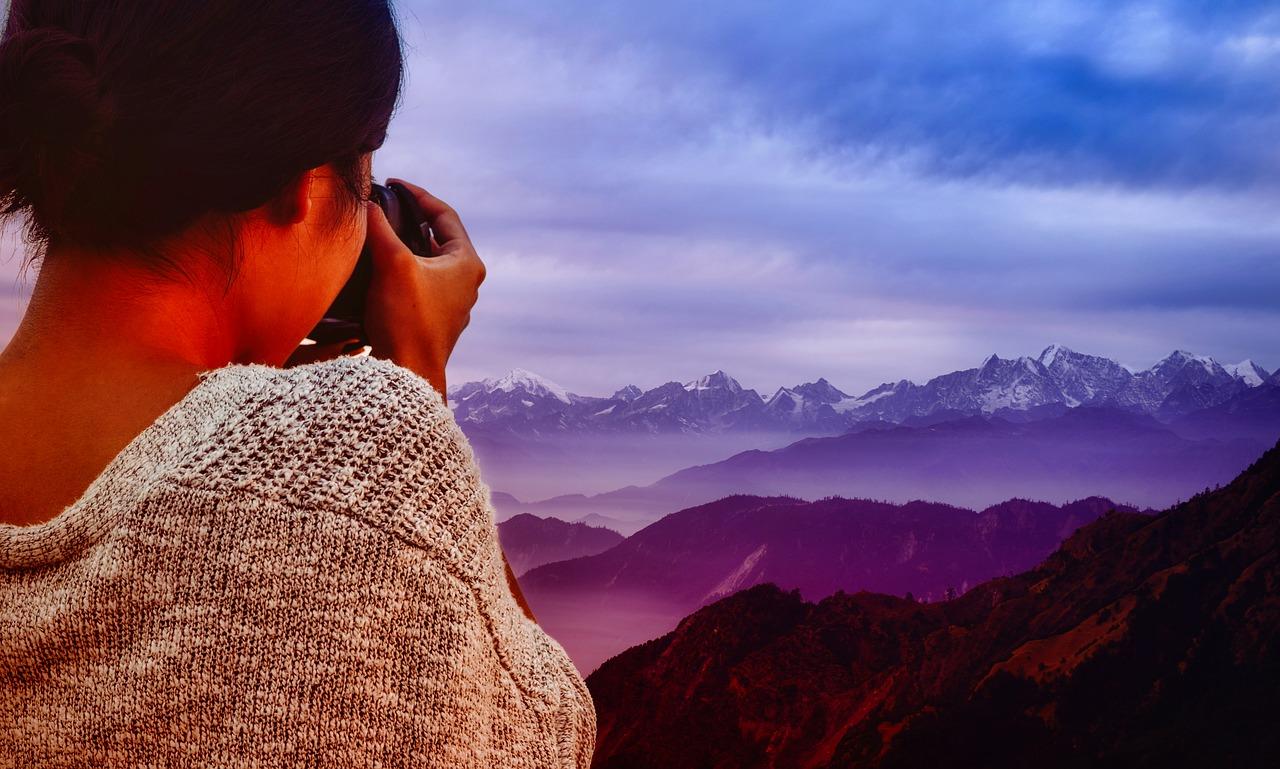
Set your rates according to the city
To set your tutoring rates, you need to consider the rates of other photography tutors and the city you are in. The average price of a photography lesson will certainly depend on the rates of other tutors near you, as the price will change if you are living in the countryside, in the suburbs or the big cities. In general, photography tutors in cities such as Toronto or Vancouver have to adapt to the price range, as there is much more demand for private tutors and much more competition.
To find out the average price of a private photography tutor in your area, go to the official Superprof website. Here you can enter "photography" in the search bar and then the city you are in, such as "Montreal". You will have access to all the photography tutors registered with Superprof, and you will be able to set your lesson rates based on the results. On Superprof, you can find more than 1600 photography tutors to set the rates that suit you best! The fewer photographers there are in your city, the more students you can attract, but if you are in a big city you will have to set a much more attractive price for your tutoring.
Highlight your tutor profile!
Are you a professional studio photographer? Have you previously taught photography classes and workshops? Being a photography teacher is not just about taking beautiful pictures. To teach well, experience and knowledge count a lot. You will need to know more than the basics to teach photography more completely. The photographer has to demonstrate that he or she has the necessary knowledge and expertise in his or her field of work. For these reasons, when creating your tutor profile on Superprof you should take your time and highlight each of your experiences and skills in photography - don't doubt any of them! All knowledge and experience are valuable!
Although in Canada the profession of photography is not regulated (i.e. you don't need any official certification to practice it), certain diplomas and training programs will give you a lot of extra plus points as a tutor, such as Bachelor's Degree in Photography, photography academic certifications, extracurricular courses, good job references, among others.
These diplomas are not always easy to obtain and are therefore highly sought after by students looking for a tutor. The student will automatically take into account your academic and professional experience as a photographer. The more artistic certifications you have, the more it can allow you to increase the cost of your tutoring.
Being a good photographer is awesome, but being a good tutor is even better. But remember, being a professional photographer is not necessarily synonymous with good tutoring. The photography tutor must be a good pedagogue, show patience and always listen to his students.
On Superprof, students have the opportunity to leave positive or negative feedback about their experience with their online tutors. This is a great opportunity for you to build a solid reputation as a tutor and attract new photography students.
Are you ready to make a living from your passion by tutoring photography online? Get started now with Superprof! You will love it!
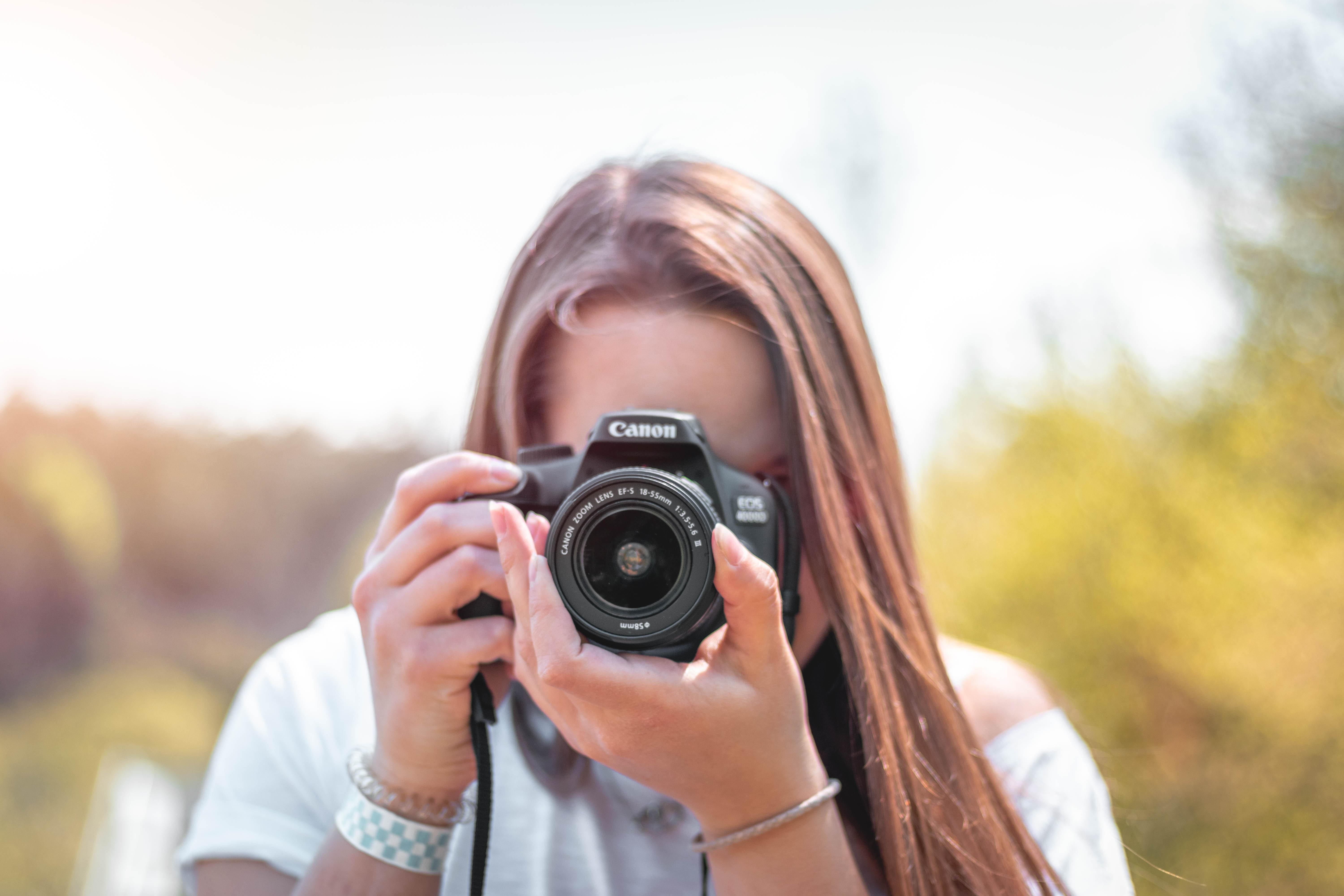
Summarize with AI:

